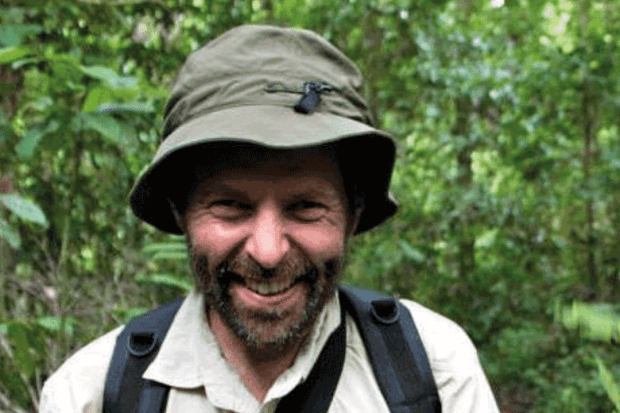An expatriate vice-chancellor forced to flee Papua New Guinea in the dead of night, fearing for his life, has said that his experience was still less stressful than academic life in the UK.
John Warren, who resigned a botany professorship at Aberystwyth University two years ago to lead the Rabaul-based University of Natural Resources and Environment, had to escape from the Pacific island after a catastrophic falling-out with the institution’s council.
At the back of his mind, Professor Warren told Times Higher Education, was the month-long detention earlier this year of Albert Schram, a Dutchman who was vice-chancellor of Papua New Guinea University of Technology. Dr Schram, whose efforts to root out fraud at his institution triggered false counterclaims that he had forged his PhD and led to his being charged with false pretence, fled the country in May after being released on bail.
Professor Warren said that he believed his troubles stemmed from his decision to fill a pro-vice chancellor post based on merit, rather than the tribal allegiance of UNRE’s chancellor, Kenneth Sumbuk.
Professor Warren claimed that Professor Sumbuk, himself a senior academic, told him “just how upset he was” and accused the vice-chancellor of spreading rumours that he wanted to take over the university.
“He came to the campus to repeatedly tell me [that he] wasn’t going to report me to the police, he wasn’t going to prosecute me…but that he knew good people who would stand up and speak against me in court,” said Professor Warren. “What I took from that was that he was threatening me over something very trivial, but which could lead me into deep, deep trouble.”
The dispute came to a head at a UNRE council meeting on 26 July when Professor Warren says he was “hijacked” and subjected to “ritual humiliation for 14 hours”.
“I knew from the start of the meeting that I was a marked man,” said Professor Warren. “At the end of that day, I handed in my notice because I was worried that if gave any criticism of the council before I’d left the country there was a danger that I would be arrested like Albert [Schram] had been.”
Professor Warren went into hiding after colleagues expressed fears for his safety and he was warned that a court order was about to be served on him. He issued a letter to the council explaining that his position had become “untenable” and that he would not be returning.
“We waited until after dark and [we were] smuggled into town to a friend’s house for 48 hours until we could get a safe flight out,” he said. “The British High Commission even told me, ‘get out – it’s not safe’.”
Professor Warren and his wife, Catherine – formerly a voluntary academic teacher at UNRE – are now safely holed up in Sydney. In spite of their experience, Professor Warren said that he retains a fondness for Papua New Guinea and had “no regrets” about his time there.
“I’m a real big fan of Papua New Guinea and the people there,” he said. “I’ve had death threats, petitions to get rid of me, I’ve had threats of prison and I still think that in many ways working in British academia is far more stressful.
“But the law in Papua New Guinea is curious, it is completely ignored except when they want to use it as a stick to beat you with. Investment and money is an alien concept whereas giving things to your wantoks [tribesmen] is at the heart of the culture.
“Therefore our views of corruption are just alien to them.”
Professor Warren advised that anyone considering taking up a job in a developing country should do it “for love not money”. “It’s never going to advance your academic career, and I certainly didn’t earn much,” he said.
“In an ideal world, I think the council just wanted me to improve the quality of teacher training and things like that but they didn’t want me interfering with the power politics. The students are desperate for their quality of education to improve. I did feel their support and, really, they are the victims in all of this.”
For the meantime, Professor Warren intends to return to his home in Wales to tend to his sheep, but has not been put off foreign adventures.
“I do feel some sort of moral obligation, now I’ve got these battle scars, to use this experience,” he said. “I’m thinking about, in a year or two, going back to somewhere in Africa and trying to do the same again…But whether that’s just testosterone talking or a power addiction thing I don’t know.”
POSTSCRIPT:
Print headline: Expatriate v-c and wife flee Papua fearing for their lives
Register to continue
Why register?
- Registration is free and only takes a moment
- Once registered, you can read 3 articles a month
- Sign up for our newsletter
Subscribe
Or subscribe for unlimited access to:
- Unlimited access to news, views, insights & reviews
- Digital editions
- Digital access to THE’s university and college rankings analysis
Already registered or a current subscriber?








